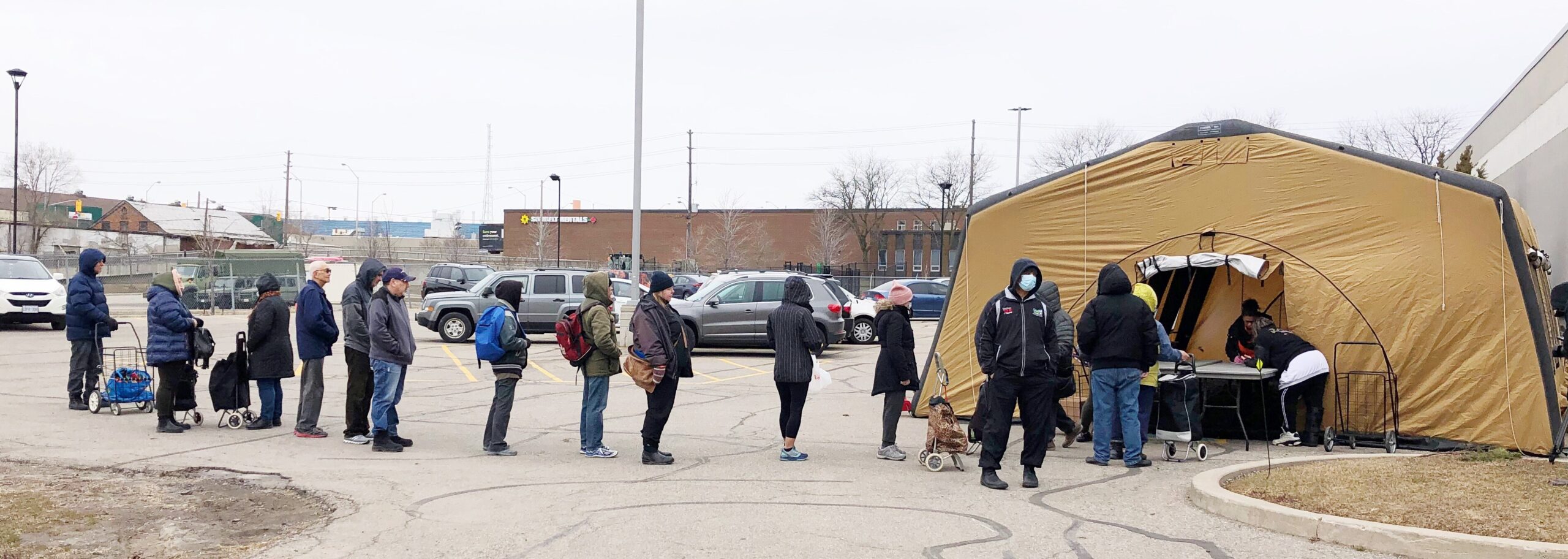
Crises inevitably reveal cracks in our public supports. Food bank clients cannot meet the most basic COVID-19 recommendations of public health officials. Social distancing and stocking up on food are both difficult—if not impossible—if you rely on food banks.
Food banks have always been intended as a last-resort option for people facing food insecurity, yet food banks have instead become a day-to-day reality. The ability for food banks to meet local needs becomes threatened as more people lose their jobs and are forced to rely on food banks and as grocery stores become stripped of their essentials. As a system of last resort, food banks can absorb some of the fallout from economic shocks, but not the sudden and simultaneous business closures, layoffs, and reduced hours that make will lead to a surge in food insecurity.
On Wednesday, March 18, the federal government announced a package of economic supports in response. We applaud the federal government for taking fast and decisive action on the following benefits:
We will be monitoring these benefits closely as they go to the House of Commons. We are particularly concerned with the ability households grappling financial insecurity to afford rent. We are pleased that the provincial government has halted evictions procedures, but further action is needed to ensure that no one is at risk of losing their housing. An emergency injection of funds into new and existing rent banks would help people bridge the gap between their support payments and cost of living. After all, this economic shock is in the middle of a health crisis—we need to secure housing to protect people’s health and well-being during this pandemic.
The federal government has taken positive first steps toward addressing the COVID-19 public emergency, but more is needed. While we await further details on how emergency benefits will reach those most in need, we call on the government to ensure the most economically disadvantaged can access the supports necessary to stay safe and healthy.
To learn about Daily Bread Food Bank’s COVID-19 relief efforts, click here.